Alarm - Interview with Mike Peters
by Anthony Strutt
published: 12 / 3 / 2004
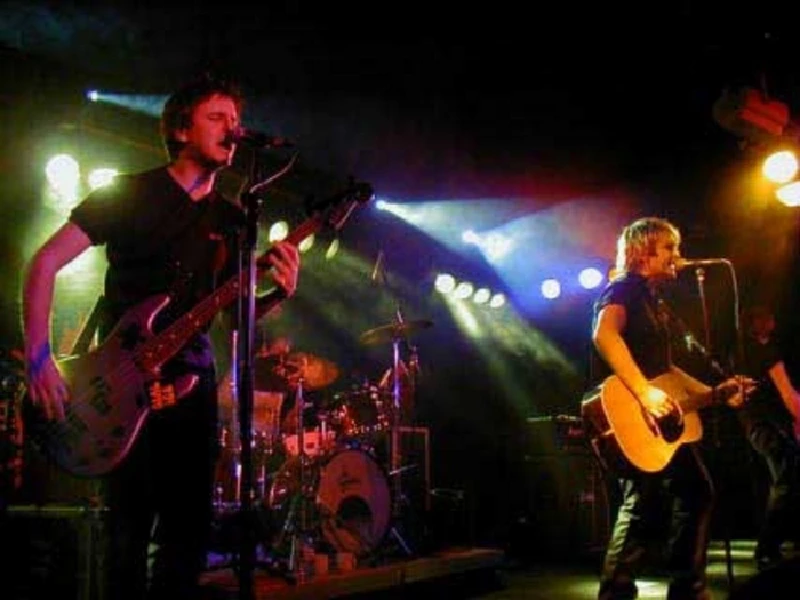
intro
in the first part of a two part interview, Anthony Strutt talks to Welsh rockers the Alarm's frontman Mike Peter about the band's early beginnings and his pride in his home country
First formed in Rhyl in Wales in 1981, the Alarm quickly became known for their long spiked hair and for their anthemic amplified acoustic sound. The group had their first hit in Britain with the classic '68 Guns' which went to no. 17 in the charts in 1983. They followed this with six successful albums-'Declaration' (1984), 'Strength' (1985), 'Eye of the Hurricane' (1987), 'Electric Folklore Live' (1987), ''Change' (1989) and 'Raw' (1991)-before finally splitting up in 1991. The Alarm drew comparisions with the Clash, but also took inspiration from U2, with whom they toured America in the early 80's, and with whom frontman Mike Peters shared similar religious convictions and a belief in rock music as a force for changing the world. Peters started a solo career, before reforming the Alarm in 2000 with a completely different line-up. The new Alarm have just released a new album, 'In the Poppy Fields' Pennyblackmusic spoke to Mike Peters at the London gig on a tour to promote "In the Poppy Fields', and began by asking him about the Alarm's early roots. PB : You originally formed back in '81 in Wales? MP : Yeah, that's right. We started with a single called 'An Unsafe Building' which we made ourselves and we used that as a way out.... PB : As a way out ? Was that as a way out of Wales ? Does that mean that Wales is not a home ? MP : Yes, it is. PB : It's still home. MP : Yes, but we felt restricted , so we forced our way out. As Ghandi once , however, said to come home, you have to go away, and I think the more we went away , the more it fostered an appreciation for me of where I came from. I have always lived there and still do even today. PN : Is there a good music scene in Wales ? Now it has become quite a trendy place for bands. MP : Yeah, when we started , there were a lot of bands but they all sang in Welsh, so in a way we were not that welcome in Wales in certain circles because, despite coming from Wales, we sang in English. We, however, eventually addressed that by singing in both Welsh and in English which no one else had done before PB : How did that work ? Did you sing in Welsh in Wales and in English in England? MP : No, we recorded one of our albums, 'Change', in both Welsh and English and then released them at the same time. We also charted a record which was a double A side , one side in English and one in Welsh ('Sold me Down the River/Gwetoch Fi Yr Afon'-Ed) and so we were able to show all Welsh bands you could use the medium of English without selling out your culture I have always also put across the point I'm from Wales. I don't speak Welsh but that doesn't make me less of a Welshman, than anyone else . I think we raised a few points that made people stop and think. When we played in Wales we often used to have Welsh language bands open up the shows. We had Catatonia and the Super Furry Animals when they still had Welsh names. PB : How would you describe what the Alarm do ? If I was asked to describe the Alarm , it would be as an acoustic lead anthem punk band with balls. MP : Yeah, that's a good description. What always seperated us from other bands was that we were a songwriting band. We weren't a band based around riffs or grooves. It was songs and they were written originally on acoustic guitars. We always felt uncomfortable when they became transferred into electric numbers that something was being lost along the way so our trick was to put amplifers into the acoustic guitars and that's still the core of it. Theres a lot of bands whose songs you couldn"t busk in a subway with but with Alarm songs you can with everyone of them. PB : The first major song in Britain was'68 Guns'. Were you surprised when that became a big hit? MP : We were because we had broken in the U.S.A. with the previous song before that which was called 'A Stand' . We broke that when we were on tour over there with U2 . We only put out '68 Guns' to keep the following happy when we went back to America . It charted in Britain and we were touring out there when we got a call to say that we had got 'Top of the Pop's. That too was something of an accident because P.I.L. pulled out and they then decided they wanted us instead. That's what set the wheels in motion though. PB : How long did the original line up last? MP : Till "91. PB : Why did it end? MP : It got to the point where the other guys didn't want me to be the singer anymore . It all got a bit tense for a while so I left them to it and they were unable to do anything as the Alarm without me being in the band. It all came back to me 10 years later when I was able to reconstitute the band and continue it as it should have been. PB : Are you friends again with the original line-up now? MP : Yeah ! PB : But you wouldn't get back to together permanently. MP : We did a reunion show here in November last year, which will be shown on VH1 soon. I think it would be a mistake now because the others are entrenched in the real world of jobs and careers , and I think the new band is better. I don't know why it has ended up that way because it goes completely against the grain and the usual rules of these things. The original band had something and the new band has that something extra which you don't find very often . It happened though very naturally and I think now it would be a disservice to the original guys and the new band to go back because if I went out with the originals all we would be doing is stuff from the 80's. I think with the new Alarm we have a set of songs that are as good if not better than the original set of songs. PB : . And also you attract a new crowd as well as some of the older fans? MP : Exactly. The newer songs refresh the older ones. Something like '68 Guns' sounds great sandwiched between two new songs. The new songs sound great because they have got points of reference. If we went out though with the original line up , it would just be a cabaret act. PB : That happens a lot now though ? PB : It does. Theres nothing wrong with that but I"m interested in pushing things forward.. We started the modern day Alarm in 2000, and have been building it up over 4 years now . The new band soaked up all the original ideas that made the group good before we made the step of making an album. To create the new album we made 5 internet albums and we shared these with our fans. There were over 50 songs and the fans voted for the best songs to be put on the new album and we then toured with them. The new songs sit in the set like hand in glove. It's gone better than we could of imagined. The second part of this interview will be featured next month
Band Links:-
http://www.thealarm.com/https://www.facebook.com/TheOfficialAlarm
https://twitter.com/thealarm
Picture Gallery:-
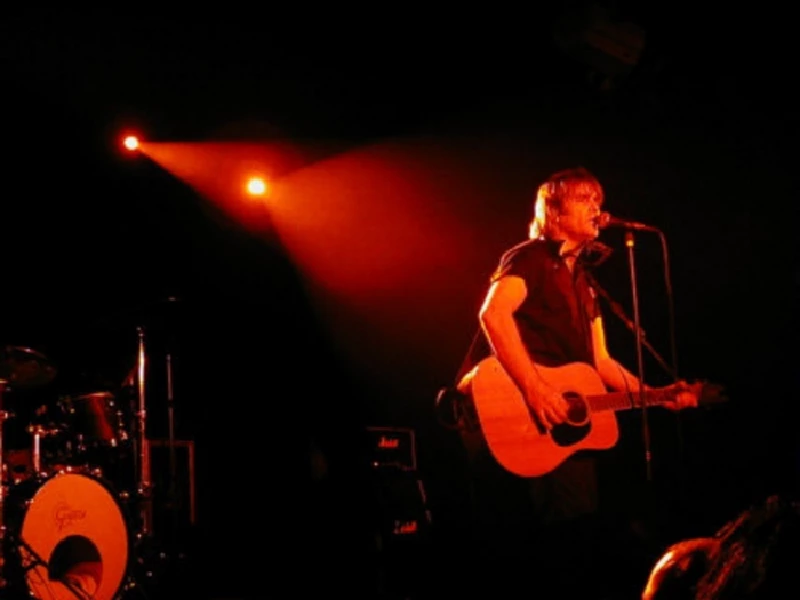
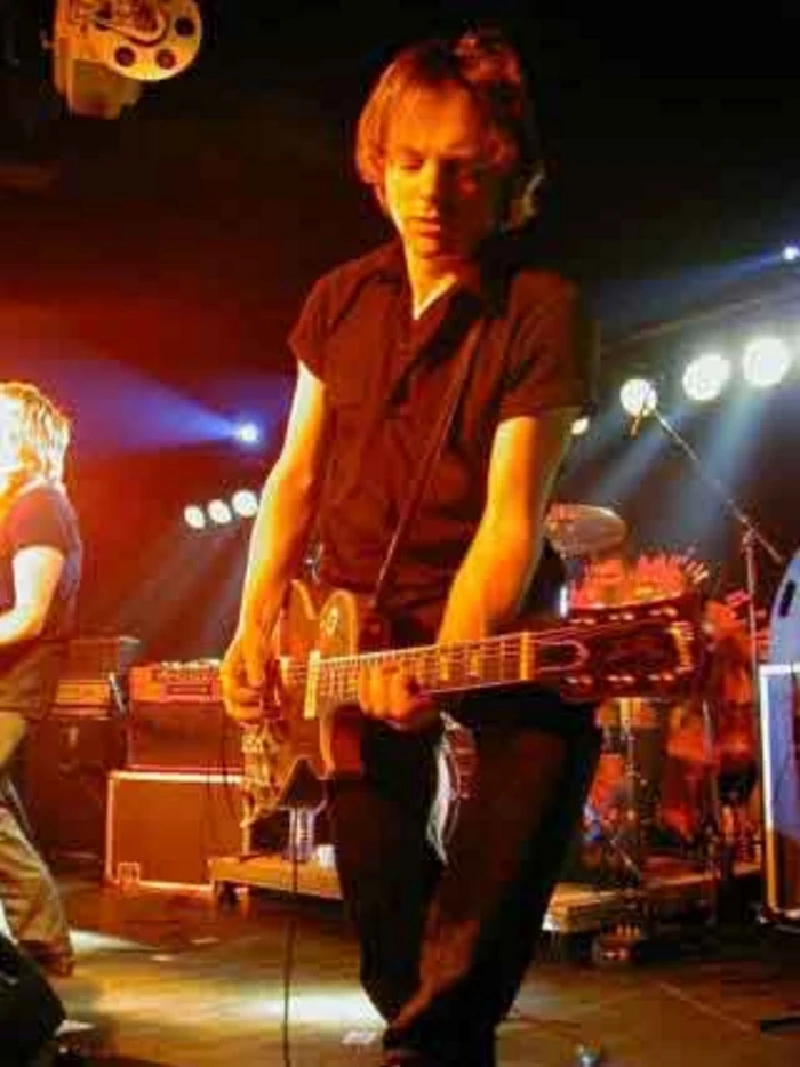
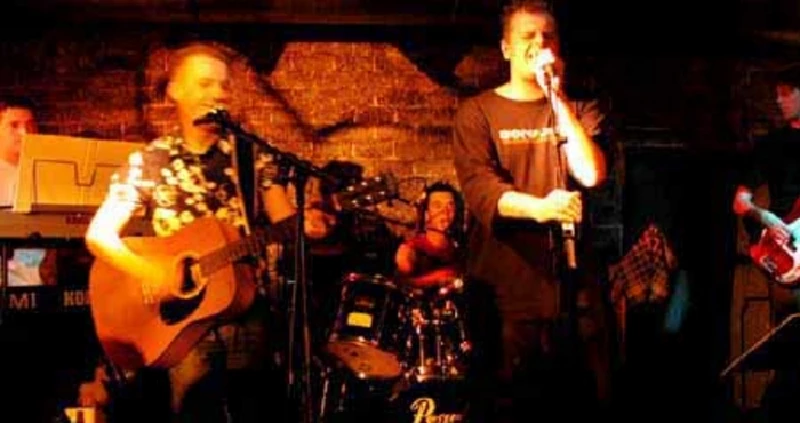
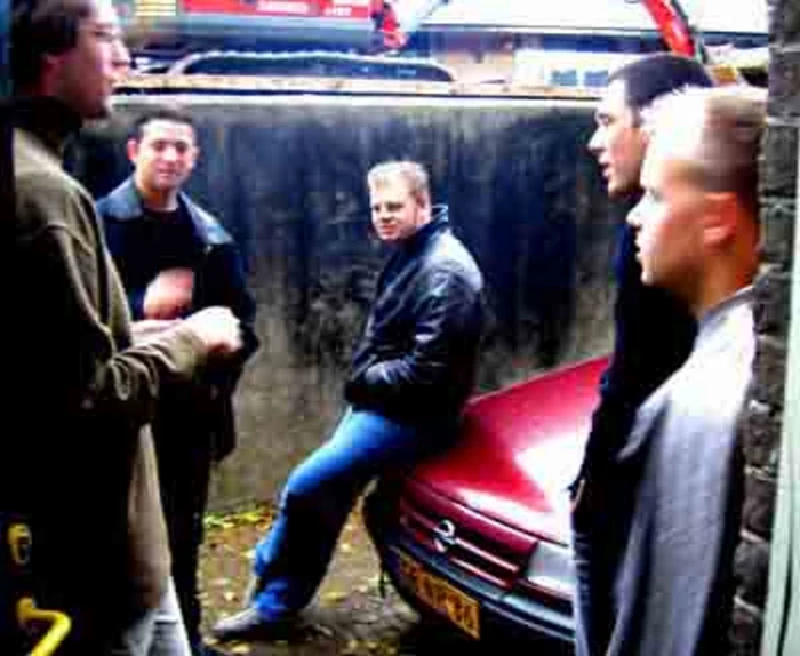
interviews |
|
Interview with Mike Peters Part 2 (2004) |
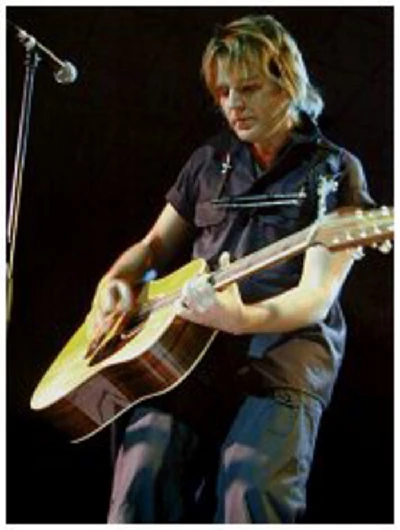
|
| In the second part of our Alarm interview, the first part of which we published last month, frontman Mike Peters talks to Anthony Strutt about the recent release of all his band's old albums, and his side project , punk supergroup, Dead Men Walking |
live reviews |
|
O2 Academy, Liverpool, 8/3/2016 |
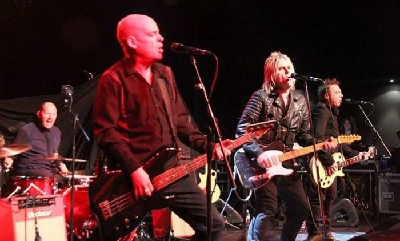
|
| Marking their 35th year as a band, the Alarm plays to a sizeable crowd supporting the Stranglers at the Liverpool Academy |
reviews |
|
New Home, New Life (2004) |
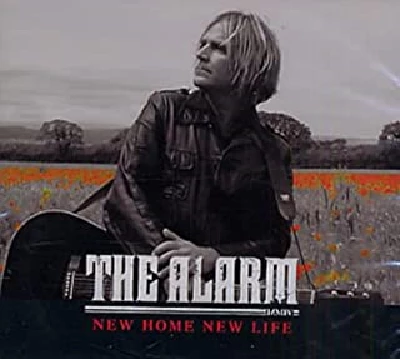
|
| Excellent new CDS from reformed 80's anthemic rockers the Alarm, their first official single in thirteen years |
| In The Poppy Fields (2004) |
most viewed articles
current edition
Carl Ewens - David Bowie 1964 to 1982 On Track: Every Album, Every SongSimian Life - Interview
the black watch - Interview
John McKay - Interview
Editorial - July 2025
Billie Eilish - O2 Arena, London, 10/7/2025
Armory Show - Interview with Richard Jobson
Hothouse Flowers - Photoscapes
Bathers - Photoscapes 2
Cleo Laine - 1927-2025
previous editions
Trudie Myerscough-Harris - InterviewPixies - Ten Songs That Made Me Love...
Boomtown Rats - Ten Songs That Made Me Love....
Fall - Hex Enduction Hour
Heavenly - P.U.N.K. Girl EP
Sam Brown - Interview Part 2
And Also The Trees - Eventim Apollo, London, 21/12/2014.
Place to Bury Strangers - Interview
Miscellaneous - Charity Appeal
Blues and Gospel Train - Manchester, 7th May 1964
most viewed reviews
current edition
Sick Man of Europe - The Sick Man of EuropeAmy Macdonald - Is This What You've Been Waiting For?
Phew, Erika Kobayashi,, Dieter Moebius - Radium Girls
Blueboy - 2
Lucy Spraggan - Other Sides of the Moon
Alice Cooper - The Revenge of Alice Cooper
Bush - I Beat Loneliness
Cynthia Erivo - I Forgive You
Davey Woodward - Mumbo in the Jumbo
Philip Jeays - Victoria
Pennyblackmusic Regular Contributors
Adrian Janes
Amanda J. Window
Andrew Twambley
Anthony Dhanendran
Benjamin Howarth
Cila Warncke
Daniel Cressey
Darren Aston
Dastardly
Dave Goodwin
Denzil Watson
Dominic B. Simpson
Eoghan Lyng
Fiona Hutchings
Harry Sherriff
Helen Tipping
Jamie Rowland
John Clarkson
Julie Cruickshank
Kimberly Bright
Lisa Torem
Maarten Schiethart